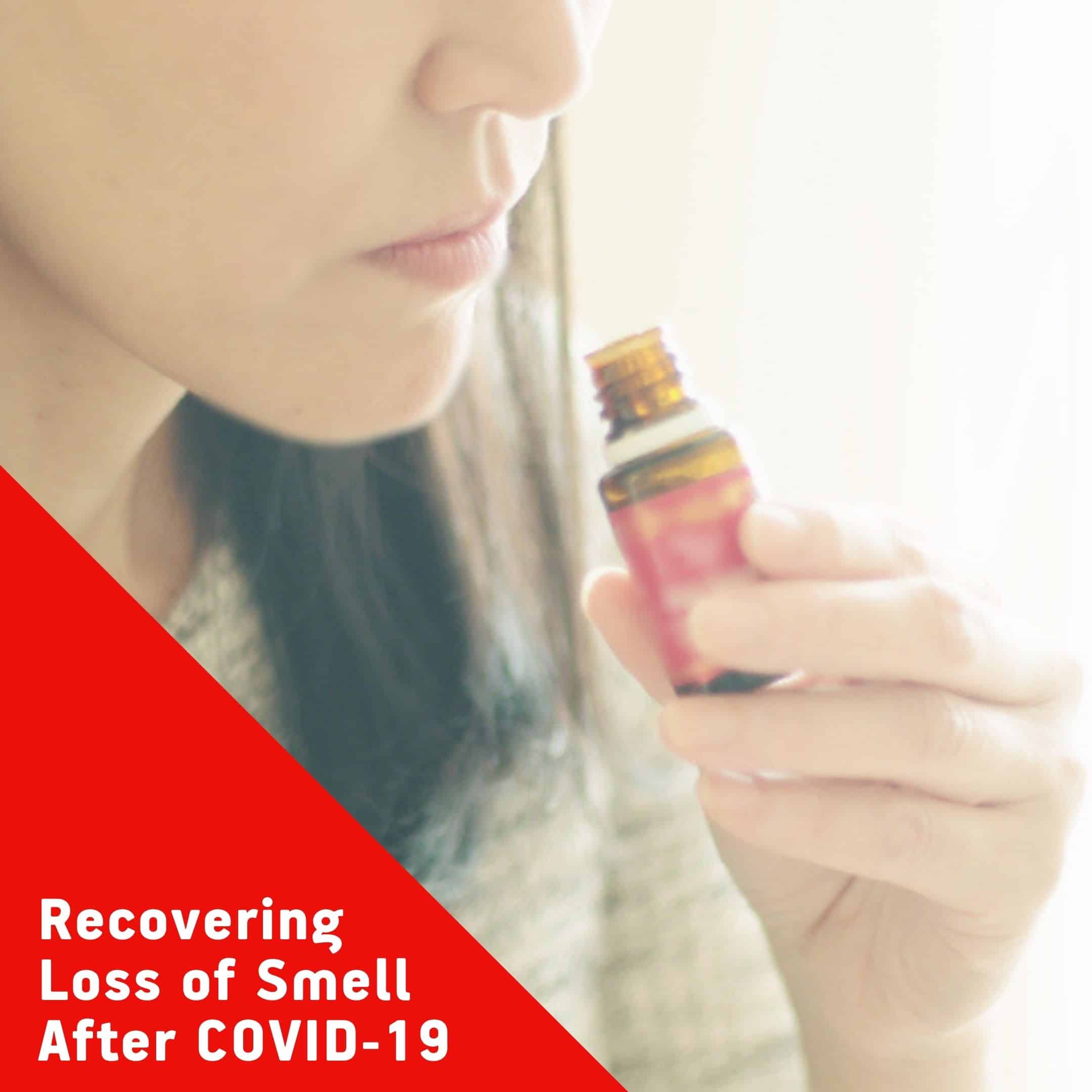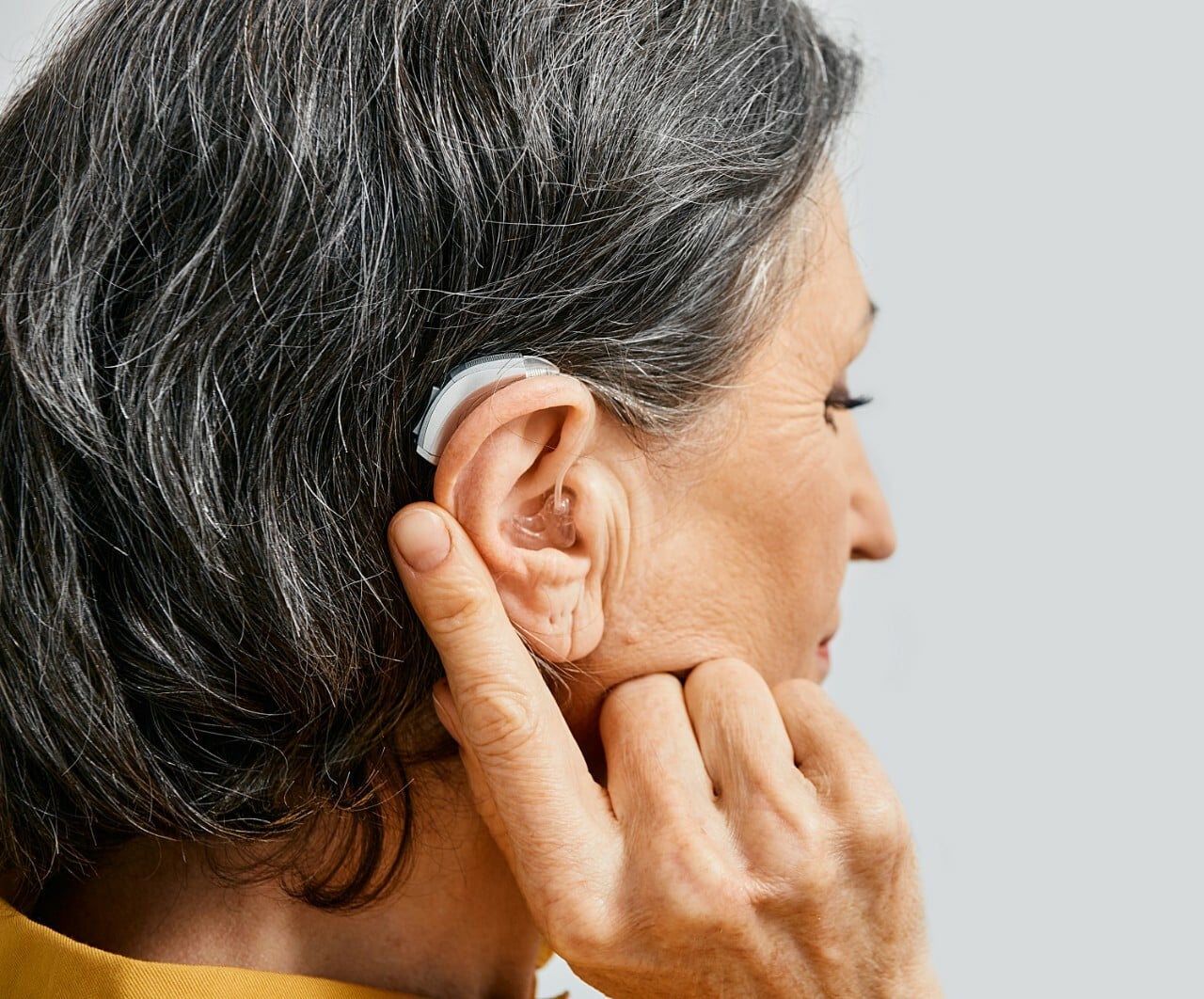Breathing shouldn’t feel like a struggle, but for those living with nasal airway obstruction (NAO),…

Lingering Loss of Smell After COVID-19? Here’s What to Do
Smell is one of our five senses that we often think little about even though it’s strongly linked to emotion and memory. It can alert us to danger and works with our sense of taste to allow us to experience the flavor of food.
To lose your sense of smell (also called anosmia), and most likely your sense of taste to some extent as well, can pose several challenges, both mentally and physically. The COVID-19 pandemic has shined a light on anosmia, and doctors and scientists are still trying to figure out more about this common symptom.
Here’s information about why COVID-19 may cause us to lose these senses and some advice about how to manage it.
Loss of Smell After COVID-19 Infection
Many people wonder how common this symptom really is. A recent study collected data regarding COVID-19-related loss of smell or taste from 69,841 individuals who self-reported symptoms. The findings provide a genetic link to the biological mechanisms underlying COVID-19-related loss of smell or taste.
Of those who reported a positive test, 68% said they experienced loss of smell or taste (47,298 out of a total of 69,841 individuals). Female respondents were more likely than male respondents to report this symptom and those with this symptom were typically younger than those without it (mean age of 41 years for those with loss of smell or taste versus 45 years for those without).
While we can clearly see that a large fraction of COVID-19 patients report loss of smell or taste, the underlying mechanism is unclear. The most likely cause is that damage occurs to the cells that support and assist the olfactory neurons, called sustentacular cells. These cells can regenerate from stem cells, which may explain why smell recovers quickly in most cases.
Most often, smell dysfunction does improve soon after the infection. Approximately 90% of those affected can expect improvement within four weeks. But for others, it can take months or recovery may be incomplete.
Tips to Help Recover Sense of Smell
Currently, there is no proven treatment for lasting smell dysfunction. Topical corticosteroid sprays are often used in the short-term for treatment, but they are unlikely to help outside of the acute illness period.
One type of treatment that has shown promise is smell retraining therapy, or olfactory retraining. This involves exposing the patient to different strong scents for several minutes for an extended period of time. Smell retraining therapy can be effective for many different causes of smell loss, and not just from COVID.
Typically, you will smell a series of four strong scents that can be found in the home, or in the form of essential oils. Each scent is gently sniffed for 20 seconds. This process is repeated three times daily for six weeks. Long-term commitment is usually required to see improvement.
Smell training may be most effective if you work on the same four scents each day, rather than alternating. It’s also recommended that you concentrate on the scent fully, giving it your full attention, for the entire 20 seconds.
The following scents often work well:
- ground coffee
- rose
- citrus
- eucalyptus
- vanilla
- clove
- mint
Another good option to consider is ginger, powdered or raw. It has a distinctive, pungent scent that makes it beneficial for use in smell training. Drinking ginger tea may also help. It can help reduce inflammation in the nasal airways and reduce excess mucus formations that block nasal passages, which may be a factor in loss of smell.
If you are unable to smell the above essences at all, try remembering what they smell like. Our brains are powerful tools and may be able to engage your senses. It does take time and commitment, but many people notice an improvement in their ability to smell within a few weeks.
Nasal irrigation can also sometimes help by flushing out allergens and mucus from the nasal cavity. This may help in COVID cases, but it can also help when other common viral upper respiratory illnesses, such as the common cold, cause dysfunction with the sense of smell.
Get More Advice About Correcting Loss of Smell from ExcelENT of Alabama
While these are methods you can try at home to help recover your sense of smell, it can be a good idea to work with an ENT, such as Dr. Davis from ExcelENT of Alabama to come up with a more specific treatment plan. We are happy to offer additional advice and options. Schedule an appointment online, or call to discuss coming in at a time that’s best for you: 205-988-6858.


